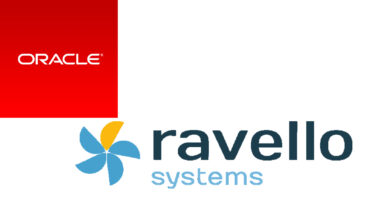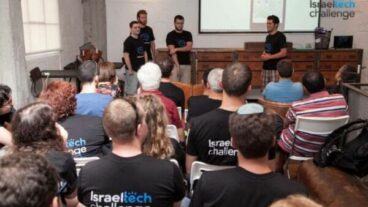
Israeli high-tech and biotech startups witnessed a record year of acquisitions and initial public offerings (IPOs), according to end-of-year reports by accounting firm PricewaterhouseCoopers (PwC) and Ethosia Human Resources. The reports show that 52 Israeli startups exited to the tune of some $15 billion this year, while 18 IPOs racked up $9.8 billion.
Kontera ($150 million), Cyvera ($200 million), SuperDerivatives ($350 million), Simbionix ($120 million), Green Smoke ($110 million) and Wilocity ($300 million) were among the top blue-and-white acquisitions of 2014.
Jonathan Medved, CEO of OurCrowd equity crowdfunding, tells ISRAEL21c that the pace of investment in Israel is surprisingly swift. “2013 was already a good year by Israeli standards. The fact that 2014 is up 30 to 40 percent is shocking,” he says.
“This year, 2014, will be known as a revolutionary year,” writes Eyal Solomon, CEO of Ethosia, in the introduction to his firm’s annual report on Israeli high-tech and biotech. “It is revolutionary in raising funds, in the rate startups were launched, in the speed of raising funds and the pace of exits, which broke every record possible.”
But whereas years past were all about Israeli companies scoring big exits, 2014 showed a transition to successful IPOs and globalization.
“Companies that in the past were able to sell themselves and earn big returns for investors are going to the end with a share offering and building big companies,” Rubi Suliman, head of PriceWaterhouseCoopers Israel’s high-tech practice, told Ha’aretz (http://www.haaretz.com/business/.premium-1.634546).
This year’s IPO crop was led by collision-avoidance technology company Mobileye ($890 million), which achieved the largest-ever IPO of an Israeli company.
Altogether, 18 Israeli tech companies raised $9.8 billion in IPOs this past year, according to figures in the PwC report. This represents a huge jump on the $1.2 billion from 2013.
Cybersecurity company CyberArk Software, digital advertising group Crossrider and robotic exoskeleton maker ReWalk also recorded top IPO performances this year.
“Over the past year the stars were aligned perfectly for Israel high tech,” said Suliman of PriceWaterhouseCoopers Israel. “There is no small number of companies with the ability and appetite to go public and become the leaders in their industries. Likewise the appetite of [multinational] corporations for mergers and acquisitions remains high and we will see their activities in this remain higher than usual.”
Taking a cue from Wall Street, not Gaza
While last year’s forecasts for 2014 predicted a strong performance in the Israeli high-tech field, no one could have foreseen this past summer’s Gaza conflict. Though the Israeli economy took a hit, its high-tech and biotech sectors reached record-breaking numbers.
“Israel takes its cues from Silicon Valley and Wall Street as opposed to Ramallah and Gaza,” Medved, one of Israel’s leading high-tech venture capitalists, tells ISRAEL21c. “It’s been a great year on Wall Street and in Silicon Valley and that’s why we’re doing so well.
“Israel has proven time and time again this unbelievable resilience in the face of what normal people would view as overwhelming potential crises and risk factors. We don’t relate that way to them. They are things we take in our stride and move on and get the next deal done,” he says. “If you look at what happened this year, we had our biggest IPO in history, which was Mobileye, and it happened to take place in the middle of the war.”
Ethosia’s Solomon points out that the high-tech industry is uncorrelated with the rest of the economy, even in wartime.
“While the economy as a whole is suffering from a slowdown, high-tech is flourishing more than before Operation Protective Edge,” Solomon told Globes. “Many of the high-tech companies operating in Israel are international companies located overseas that have their development centers in Israel. The products of this industry are also designated for overseas markets, which are mostly unaffected by this war. The global economy is improving, and the high-tech market is therefore not suffering; it is on an uptrend.”
Home-court advantage in 2015
The best news for Israel, says Medved, is that the most in-demand technologies — such as cyber-security, real-time computing, Internet of Things software and big-data analytics — happen to be the country’s specialty.
“The big new hot tech areas seem to be getting closer and closer to Israel’s sweet spot, playing into our home court. We’re getting a home court advantage,” he tells ISRAEL21c.
“There’s never been a time when security was more important, and you don’t need the Sony hack or The Interview to point that out. … This is stuff that Israel is very good at because of our military capabilities, as evidenced by our expertise at Iron Dome, which is the world’s most spectacular public example of real-time computing. … Add that to big data, analytics, the cloud — all things Israel is good at. It turns out Israel is more relevant than before.”
Both the PwC and Ethosia reports forecast more Israeli companies setting out on the IPO route and a continued strong interest by foreign companies in Israeli technology.
Medved says the rise of Asian investment, led by China but not limited to China, will also “become a significant part of the business here.”
“We’ve seen a dramatic increase in investor interest worldwide in Israeli startups,” says Medved. “My sense is 2015 will be a far, far better year.”









